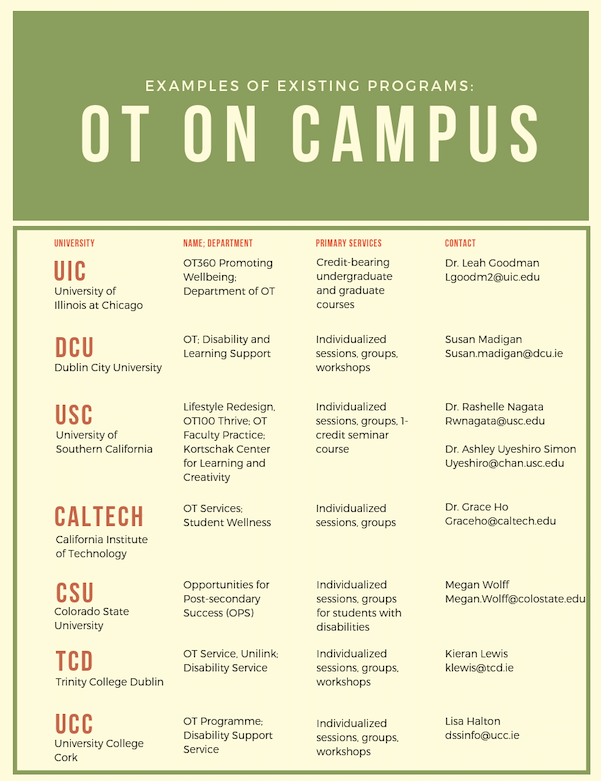Welcome to our special section, Thrive on Campus, devoted to covering the urgent issue of mental health among college and university students from all angles. If you are a college student, we invite you to apply to be an Editor-at-Large, or to simply contribute (please tag your pieces ThriveOnCampus). We welcome faculty, clinicians, and graduates to contribute as well. Read more here.
Higher education communities are seldom unanimous in their perspectives on academic practices and how to best educate students. When it comes to the mental health crisis, however, there is some consensus: The rise of mental health concerns on college campuses demands immediate changes to more comprehensively support students.
True to form, universities in the U.S. have not agreed upon how to do this. The ongoing conversation — and related research pursuits — surrounds feasible, sustainable and cost-effective approaches to supporting student mental health. What do they actually need? How do we provide it? And whose responsibility is it to provide, anyway?
While the academic community continues to ponder these questions, students are struggling. And dying.
College counseling centers are overbooked with long wait-lists for care, and students have begun to advocate strongly for increased services. Within the current structure of higher education, the onus of supporting student mental health and well-being falls almost exclusively on counseling and wellness centers. Counseling is an effective evidence-based approach to supporting mental health, but perhaps it’s not the only support students need…
Students have expressed a desire for more self-management support that reaches beyond traditional counseling services. One study of students with invisible disabilities found that “while campus counseling services were readily available, participants felt as if there were fewer supports for dealing with their more basic day-to-day demands” (Kreider, Bendixen & Lutz, 2015).
Increasing numbers of students with mental health diagnoses are entering college, and simultaneously, the overall population of students is experiencing high levels of distress. In a national survey conducted in 2018, 85% of college students reported feeling overwhelmed by their responsibilities at some point within the past year, over 40% felt so depressed that it became difficult to function, and many report that mental health affects their academic performance.
Universities are serving a changing population of students. This means that to serve their purpose, universities need to also change how they serve students. If the students are different, university structure, policies and services must also be different.
In considering a proactive approach, a professor at North Carolina State suggests that we “focus on helping students to develop coping skills … instead of primarily focusing on the post-experience treatment … this shift could enable institutions to reduce demand for rapid-access services, alleviate their overworked mental health practitioners, and lead to a better higher education experience for students” (Payton, Yarger, & Pinter, 2018).
The question remains: how do we support student mental health and well-being?
More specifically, how do we support their day-to-day needs and the development of coping skills to manage all aspects of student life?
Occupational therapy (OT) is an evidence-based discipline that focuses on meaningful engagement and performance in all contexts. According to the profession’s Practice Framework, the purpose of OT is “enhancing or enabling participation in roles, habits, and routines in home, school, workplace, community, and other settings” (The American Journal of Occupational Therapy, 2014, p. 1). Veering away from professional jargon, occupational therapists (OTs) support people of all ages to do the things they need to do and want to do in order to build healthy and meaningful lives.
In a university setting, OTs can serve students within the real-life contexts of all of their roles and responsibilities, and can support the development of healthy habits and routines to promote academic success and overall well-being.
OTs have a “broad understanding of how illness, injury, or developmental disabilities affect participation and ways to address physical, cognitive, sensory, and psychosocial challenges. Occupational therapy practitioners have expertise in task analysis, adapting tasks to match an individual’s skills, assistive technology…and modifying the environment to enable participation. This professional background makes occupational therapy practitioners well suited to help create universal as well as individualized supports and accommodations for students… that support access, participation, and success in postsecondary programs” (AOTA, 2013).
While the role of OT in mental health is not widely understood outside of the profession, OTs have been providing quality mental health services in a variety of institutional, health, and community contexts for over 100 years.
OT is demonstrating success as a viable supportive and mental health service on campuses across the globe — notably Ireland and the U.S. — but is not yet being universally adopted by the higher education community. OT has the potential to address unmet student needs, particularly in regard to developing healthy habits and routines, supporting meaningful engagement, setting and meeting goals, managing time and stress, encouraging social and community participation, enhancing academic and study skills, providing disability supports and accommodations, promoting self-advocacy, and strengthening life skills.
Dr. Karen McCarthy is an OT professor with substantial experience building and delivering OT services for college students in both the U.S. and Ireland. She explains, “college students are in a life transition, which includes a transition in occupations, habits, routines and the environment. OT sessions are client-led and take place in the environment where college student occupations take place. Students appreciate a strengths-based, hands-on, practical approach to helping them to manage college life.”
Employing a one-size-fits-all model invalidates the nuanced variability in student needs. Counseling centers provide one model of student support, and disability services offer another. OT does not propose to infringe upon other practice areas, but instead, it desires transdisciplinary collaboration to fill gaps in care, provide holistic campus supports, and cultivate an institution-wide culture of well-being.
“Occupational therapy is an amazing adjunct to existing services because it allows health and counseling services to focus on their specialties while still addressing a student’s concerns holistically,” explains Dr. Grace Ho of CalTech.
By integrating OT into campus service models, we can broaden the scope of potential support for students on campus.
As universities contemplate policy changes and mental health service provision to better meet student needs, they should incorporate OT into the conversation. Universities are missing out on the opportunity to collaborate with interdisciplinary partners and develop sustainable, holistic, effective models of student support.
“My dream is that one day, every college campus will have an occupational therapist to provide holistic, student-centered treatment that promotes full engagement within academic, psychosocial, and health and wellness domains,” hopes Dr. Rashelle Nagata, OT in the Kortschak Center for Learning and Creativity at the University of Southern California.
While lines for counseling centers grow longer — and campus mental health providers struggle to keep up with growing demand — OTs have begun to develop diverse programs to support student mental health, well-being and academic success.
Successful OT campus services and courses, both internationally and domestically, are doing the work of investing in the whole student: addressing day-to-day needs and developing skills that will support students in their academic careers and beyond. Therapists working in higher education practice areas encourage other universities to integrate OT into their service models to support students.

Dr. Jeanne R. Eichler, Assistant Professor of OT at the University of Arkansas, emphasizes the importance of needs-informed program development, suggesting that support professionals should “pay attention to what the campus is telling you and adjust accordingly.” This is consistent with the model developed at UIC, such that the diverse population of first-generation, commuter, and minority students informed the decision to build credit-bearing courses that are more congruent with student needs, preferences and availability.
Students across the country (and globe) are telling us that they need more support. Occupational Therapy is an untapped resource that can help address the mental health crisis on college campuses.
To integrate OT into your university’s model of care, you may want to:
- Conduct a needs assessment to evaluate the barriers and supports to mental health currently experienced by the students on your campus, and begin to conceptualize what types of service models will best serve them.
- Partner with your institution’s Occupational Therapy and Occupational Science departments. If you already work in an OT department, partner with interdisciplinary departments and administrative units.
- Build relationships with local universities that have OT departments—especially if your university does not—to develop programs, seek grant funding, and collaborate on research projects that will allow you to pilot OT services.
- Support capstone, thesis and doctoral projects that can build OT services and initiatives on your campus.
- Contact the providers in this article who are currently working on college campuses.
- Engage with available online resources for OTs on college campuses.
- Advocate for new programs and campus-wide initiatives that integrate OT into mental health and student support services.
- Build a community of diverse stakeholders on your campus who work collaboratively to support student mental health and well-being.
- Educate campus mental health providers and student support professionals about the role of OT on college campuses (e.g. be the voice of OT on campus-wide and administrative mental health committees, working groups, task forces, etc.)
- Develop occupation-centered well-being courses within your OT department to serve all students on campus.
Subscribe here for all the latest news on how you can keep Thriving.
More on Mental Health on Campus:
What Campus Mental Health Centers Are Doing to Keep Up With Student Need
If You’re a Student Who’s Struggling With Mental Health, These 7 Tips Will Help
The Hidden Stress of RAs in the Student Mental Health Crisis


